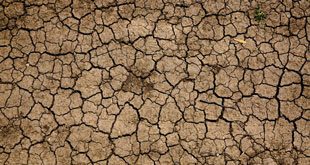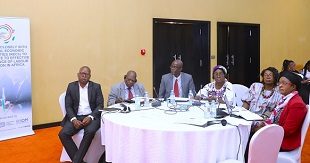
Paris, France | AFP | French President Emmanuel Macron on Friday appointed a panel of experts to investigate France’s actions in Rwanda during the country’s genocide 25 years ago, a subject that has dogged Franco-Rwandan relations since the 1994 massacres.
The commission of eight researchers and historians “will be tasked with consulting all France’s archives relating to the genocide… in order to analyse the role and engagement of France during that period,” the presidency said in a statement.
It will look at the period from 1990 to 1994 to “contribute to a better understanding and knowledge of the genocide of Tutsis,” the statement said.
The findings of the researchers, none of them Rwanda experts, will be used in material used to teach people in France about the genocide, it added.
Rwanda has accused France of being complicit in the genocide of an estimated 800,000 mostly ethnic Tutsis through its support for the Hutu-led government of the day.
It also accuses the French forces who were stationed in Rwanda under a UN mandate of having helped some of the perpetrators to escape, with some seeking sanctuary in France, which critics say for years dragged its heels on bringing them to justice.
Macron announced Friday that the judicial unit in charge of prosecuting Rwandan genocide suspects would be boosted so that suspects “could be tried in a reasonable amount of time”.
The creation of the commission and announcement of extra legal resources for genocide cases aim to help further mend the ties between Rwanda and France, which the genocide left in tatters.
Paris has consistently denied claims of complicity in the bloodletting.
Rwandan President Paul Kagame, who led the Tutsi rebel force that eventually overthrew the genocidal Hutu regime, broke off ties with France between 2006 and 2009 but relations have improved over the past decade.
– Confronting France’s past –
Macron had nonetheless caused disappointment among genocide survivors and experts by turning down an invitation to attend this weekend’s commemorations in Rwanda.
Macron’s office cited scheduling issues and announced that Herve Berville, a young MP of Rwandan origin who was orphaned during the genocide and adopted by a French family, would represent France instead.
The 41-year-old president, who came of age after France’s colonial era, has already gone further than his predecessor in lifting the lid on France’s murky past in Africa.
On Friday, he became the first French president to meet with representatives of Ibuka, the biggest association of Rwanda’s genocide survivors.
And last September he acknowledged that France had instigated a system that facilitated torture during Algeria’s 1954-1962 independence war, a conflict that also remains hugely sensitive in France.
He also announced that France would open up its archives on the thousands of civilians and soldiers who went missing during that war.
Franco-Rwandan relations hit their nadir in 2006 after a French judge recommended that Kagame be prosecuted by a UN-backed tribunal over the 1994 killing of Rwanda’s president Juvenal Habyarimana, a moderate Hutu whose death triggered the start of the genocide.
– ‘Errors of judgement’
The turning point came in 2010 when former president Nicolas Sarkozy acknowledged during a visit to Kigali that France had made “serious errors of judgement” in Rwanda.
While falling short of an apology it was seen as a breakthrough in Rwanda, a former Belgian colony which France jealously defended before the genocide as part of its sphere of influence in Africa.
The relationship hit turbulence again however under Socialist president Francois Hollande, before Macron’s election set the stage for a new chapter.
During a visit to Paris last year Kagame appeared impressed by his French counterpart, later praising him for taking a “fresher”, less paternalistic approach to Africa than his forerunners.
“It’s a change from the neo-colonial positions of the past,” he told Jeune Afrique magazine.
 The Independent Uganda: You get the Truth we Pay the Price
The Independent Uganda: You get the Truth we Pay the Price


